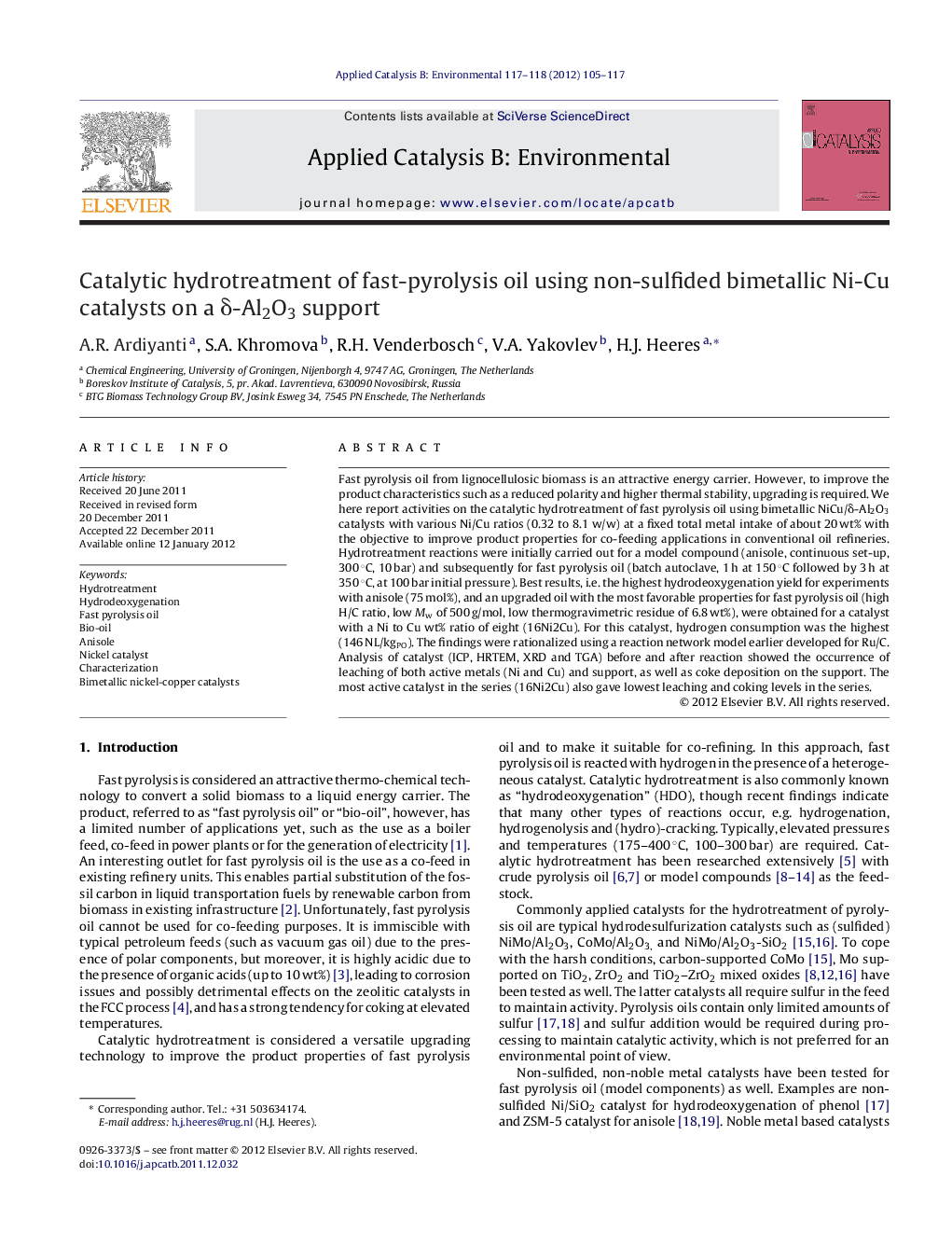| Article ID | Journal | Published Year | Pages | File Type |
|---|---|---|---|---|
| 46360 | Applied Catalysis B: Environmental | 2012 | 13 Pages |
Fast pyrolysis oil from lignocellulosic biomass is an attractive energy carrier. However, to improve the product characteristics such as a reduced polarity and higher thermal stability, upgrading is required. We here report activities on the catalytic hydrotreatment of fast pyrolysis oil using bimetallic NiCu/δ-Al2O3 catalysts with various Ni/Cu ratios (0.32 to 8.1 w/w) at a fixed total metal intake of about 20 wt% with the objective to improve product properties for co-feeding applications in conventional oil refineries. Hydrotreatment reactions were initially carried out for a model compound (anisole, continuous set-up, 300 °C, 10 bar) and subsequently for fast pyrolysis oil (batch autoclave, 1 h at 150 °C followed by 3 h at 350 °C, at 100 bar initial pressure). Best results, i.e. the highest hydrodeoxygenation yield for experiments with anisole (75 mol%), and an upgraded oil with the most favorable properties for fast pyrolysis oil (high H/C ratio, low Mw of 500 g/mol, low thermogravimetric residue of 6.8 wt%), were obtained for a catalyst with a Ni to Cu wt% ratio of eight (16Ni2Cu). For this catalyst, hydrogen consumption was the highest (146 NL/kgPO). The findings were rationalized using a reaction network model earlier developed for Ru/C. Analysis of catalyst (ICP, HRTEM, XRD and TGA) before and after reaction showed the occurrence of leaching of both active metals (Ni and Cu) and support, as well as coke deposition on the support. The most active catalyst in the series (16Ni2Cu) also gave lowest leaching and coking levels in the series.
Graphical abstractFigure optionsDownload full-size imageDownload as PowerPoint slideHighlights► Ni-Cu catalysts are active catalysts for fast pyrolysis oil hydrotreatment. ► Synergic effects were observed compared to the monometallic catalysts. ► The catalysts are interesting alternatives for expensive noble metal catalysts. ► Product properties of the upgraded oils are better than the pyrolysis oil feed.
